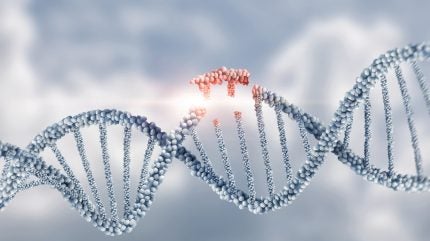

RegenxBio has announced that the pivotal dose level from its multiphase study of RGX-121 has demonstrated positive long-term data for the treatment of patients with mucopolysaccharidosis type II (MPS II) or Hunter syndrome.
As per the 3 September press release, patients who received a pivotal dose of RGX-121, described as dose level 3, had a median reduction of cerebrospinal fluid (CSF) heparan sulfate D2S6 levels of 85%. These levels were found to be approaching normal measures and were reportedly sustained for up to two years. RGX-121 is a gene therapy designed to deliver a functional copy of the IDS gene to the central nervous system via the NAV AAV9 vector.
The biotech is on track to submit a rolling biologics license application (BLA) through the accelerated approval pathway in Q3 2024. RegenxBio intends to use CSF D2S6 as a surrogate endpoint to predict clinical benefit.
The Phase I/II/III CAMPSIITE study (NCT03566043) is an open label study comprised of two parts. Part 1 marked the Phase I/II single arm dose escalation study evaluating RGX-121 in 16 pediatric participants with neuronopathic MPS II over a period of 24 weeks. Assessing safety was the primary objective during the study period, after which participants continued to be evaluated for safety and efficacy for up to 104 weeks.
Part 2 is the single arm pivotal expansion evaluating 30 pediatric patients at various points over 24 months. Primary endpoints of part 2 included CSF GAG biomarker levels, as measured by D2S6, and neurodevelopmental function as determined by the Bayley Scales of Infant and Toddler Development, 3rd Edition (BSID-III) or Mullen Scales of Early Learning (MSEL).
The Rockville, Maryland-based biotech noted that as of 5 January, RGX-121 was found to be well tolerated in the 25 patients who received treatment across all phases of the study.
Access the most comprehensive Company Profiles on the market, powered by GlobalData. Save hours of research. Gain competitive edge.

Your download email will arrive shortly
We are confident about the unique quality of our Company Profiles. However, we want you to make the most beneficial decision for your business, so we offer a free sample that you can download by submitting the below form
By GlobalData
MPS II is a rare, X-linked recessive disorder characterised by a deficiency in lysosomal enzyme iduronate-2-sulfatase (IDS), which leads to a build-up of large sugar molecules called glycosaminoglycans in body tissues.
According to GlobalData’s consensus forecasts, RGX-121 is anticipated to generate global sales of $460m in 2030. GlobalData is the parent company of Pharmaceutical Technology.
Presenting data earlier in the year at the 20th Annual WORLDSymposium, RegenxBio shared that CAMPSIITE achieved its primary endpoint, with the findings being consistent with that found in the dose-finding portion of the study.
“The data continue to support that by restoring the gene missing in boys with Hunter syndrome, RGX-121 changes the course of disease and has the potential to significantly improve both vital brain function and the systemic manifestations of this devastating disease,” said CMO Dr. Steve Pakola in the press announcement.
Cell & Gene Therapy Coverage on Pharmaceutical Technology supported by Cytiva.
Editorial content is independently produced and follows the highest standards of journalistic integrity. Topic sponsors are not involved in the creation of editorial content.

Sign up for our daily news round-up!
Give your business an edge with our leading industry insights.
